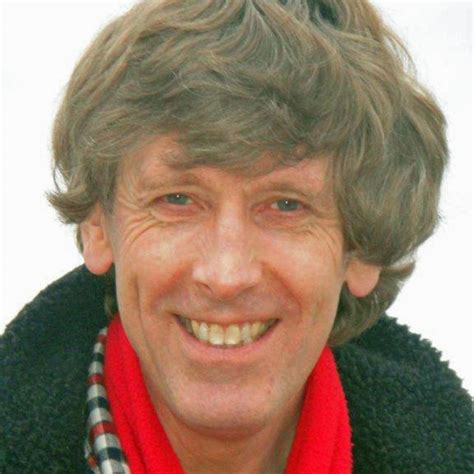A Quote by Marcus Tullius Cicero
Hours and days and months and years go by; the past returns no more, and what is to be we cannot know; but whatever the time gives us in which we live, we should therefore be content.
Related Quotes
One cannot walk down an avenue, converse with a friend, enter a building, browse beneath the sandstone arches of an old arcade without meeting an instrument of time. Time is visible in all places. Clock towers, wristwatches, church bells divide years into months, months into days, days into hours, hours into seconds, each increment of time marching after the other in perfect succession. And beyond any particular clock, a vast scaffold of time, stretching across the universe, lays down the law of time equally for all.
Our life is made up of time; our days are measured in hours, our pay measured by those hours, our knowledge is measured by years. We grab a few quick minutes in our busy day to have a coffee break. We rush back to our desks, we watch the clock, we live by appointments. And yet your time eventually runs out and you wonder in your heart of hearts if those seconds, minutes, hours, days, weeks, months, years and decades were being spent the best way they possibly could. In other words, if you could change anything, would you?
Time is only an idea. There is only the Reality. Whatever you think it is, it looks like that. If you call it time, it is time. If you call it existence, it is existence, and so on. After calling it time, you divide it into days and nights, months, years, hours, minutes, etc. Time is immaterial for the Path of Knowledge.
One year Halloween came on October 24, three hours after midnight. At that time, James Nightshade of 97 Oak Street was thirteen years, eleven months, twenty-three days old. Next door, William Halloway was thirteen years, eleven months, and twenty-four days old. Both touched toward fourteen; it almost trembled in their hands. And that was the October week when they grew up overnight, and were never so young any more.
I don't think anybody can prepare on a physical level. It isn't possible to prepare for what is about to happen. The Pentagon gives us one to three years left of normal life on this planet. Now you have Al Gores movie "An Inconvenient Truth", whom I find very optimistic, as he gives us ten years. But I don't know a single scientist on the planet who gives us ten years or anybody else who gives us that long. What the Pentagon talks about is the rapid changes in climate, making it impossible to live in certain areas. Exactly where those areas are, they don't know.
To live means to experience-through doing, feeling, thinking. Experience takes place in time, so time is the ultimate scarce resource we have. Over the years, the content of experience will determine the quality of life. Therefore one of the most essential decisions any of us can make is about how one's time is allocated or invested.
Sufficient for the day is all that we can enjoy. We cannot eat or drink or wear more than the day's supply of food and raiment; the surplus gives us the care of storing it, and the anxiety of watching against a thief. One staff aids a traveller, but a bundle of staves is a heavy burden. Enough is not only as good as a feast, but is all that the greatest glutton can truly enjoy. This is all that we should expect; a craving for more than this is ungrateful. When our Father does not give us more, we should be content with his daily allowance.
There are, it seems, two muses: The Muse of Inspiration, who gives us inarticulate visions and desires, and the Muse of Realization, who returns again and again to say, 'It is yet more difficult than you thought.' It may be that when we no longer know what to do, we have come to our real work and when we no longer know which way to go, we have begun our real journey.
The first victim in journalism today is proximity. I know I've used that word a lot. Because of foreign budgets, newspapers have consolidated, and journalists now cover dozens of countries at a time. It is physically not possible for one person to understand and live the unique sets of experiences in all these places in honest and meaningful ways. Outlets used to send journalists to places like Congo for months at a time, and they were stationed there for months or years. There was a sense of immersive reporting, and that has been a casualty of the shift in news over the past years.











































